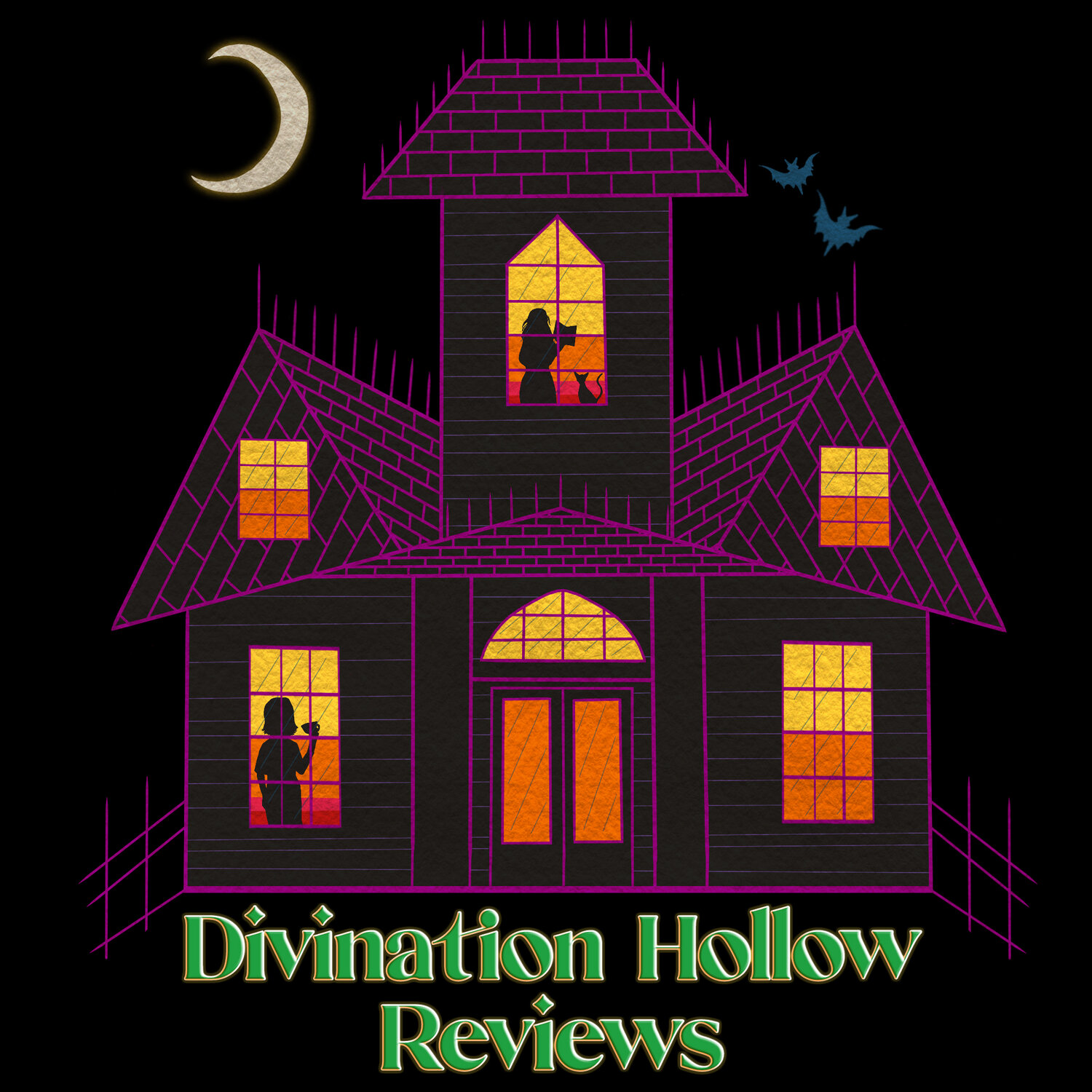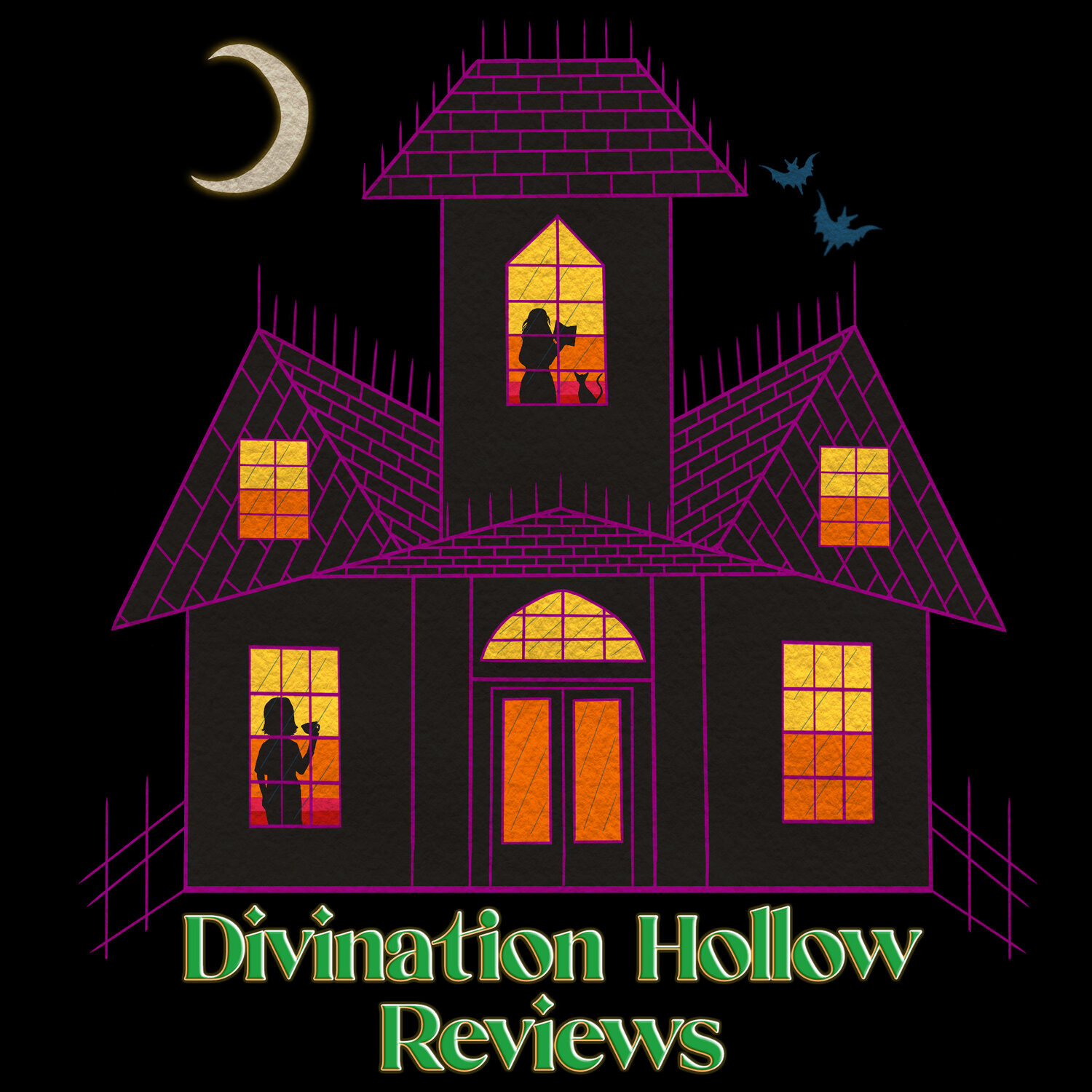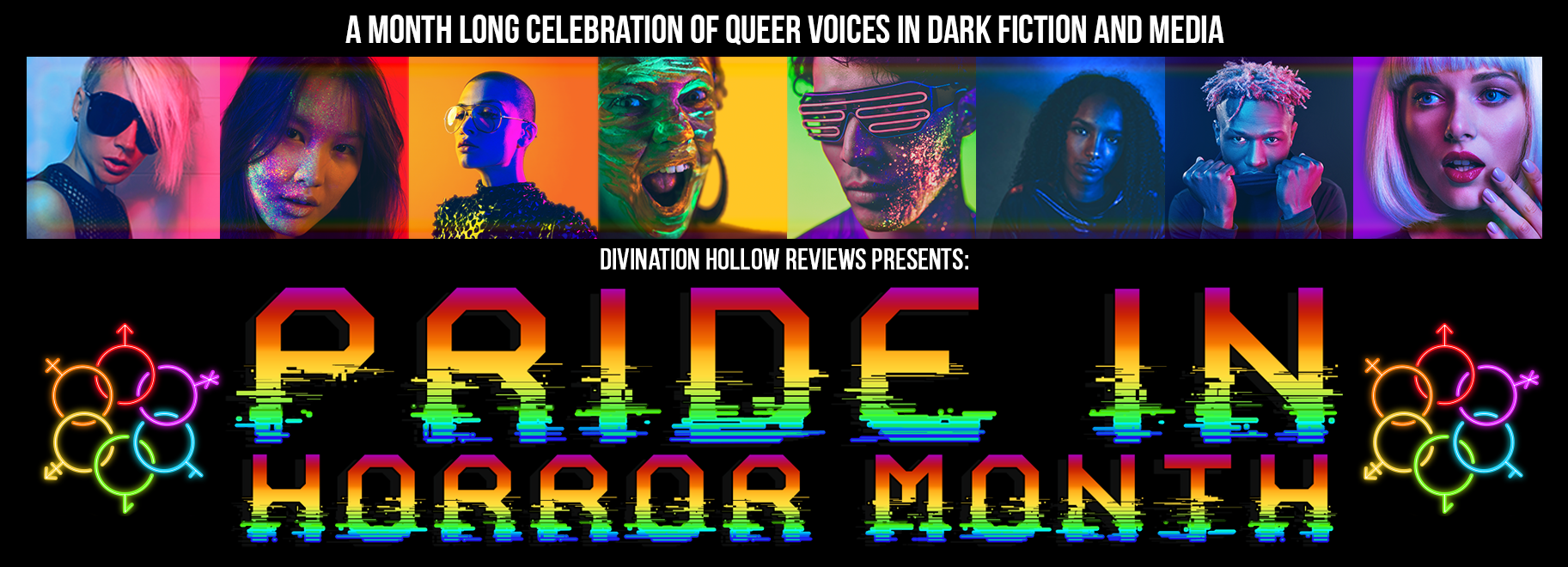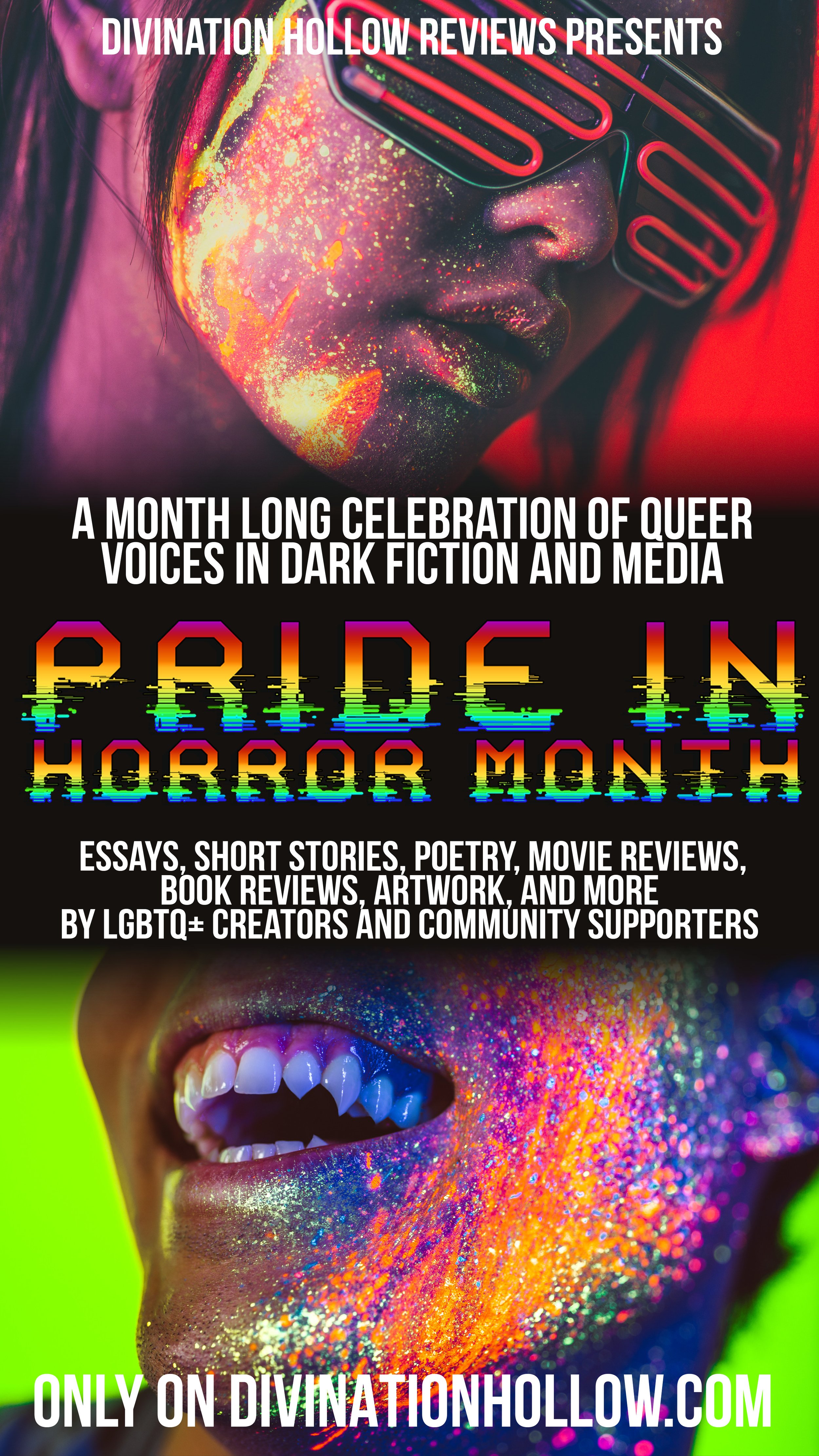PIHM: Interview with Cat Voleur
As well as being one of the long-standing team contributors to Divination Hollow, Cat Voleur is also the author of various books including the fantastic Revenge Arc, The Desert Island Game, and the recently released My Apologies to Tanya Grace. Elle interviewed Cat as part of a series of interviews focusing on DHR team members for Pride in Horror month.
Divination Hollow Reviews: Thanks for joining us for this interview, Cat! How would you describe your writing for readers who are unfamiliar?
Cat Voleur: I would describe my writing, simply, as experimental. I seldom write within my comfort zone, so virtually everything I release was something that was trying for the first time, or features some sort of twist that I thought would challenge me.
DHR: You can definitely see that reflected in your work, so let’s talk about Revenge Arc – the found file novella deals with internet culture, parasocial relationships and more. Was there anything (or anyone) in particular that inspired the novella?
CV: Revenge Arc really is my love letter to the creepypasta age of horror—specifically in the 2010s where the genre saw such a resurgence of interest. The whole book is packed with Easter eggs of the different media that inspired specific portions, but more than anything I was inspired by nostalgia.
DHR: Nostalgia is definitely a great source of inspiration, and those creepypastas weren’t just terrifying but an excellent gateway to horror for many. What’s your favourite creepypasta?
CV: My favorite OG creepypasta is probably Smile Dog. But if I can branch out into the creepypasta adjacent, reddit inspired, internet horror of that era it would be a tie between C.K. Walker's Borrasca and UnsettlingStories' Runners series. Borrasca I think was definitely one of the most influential creepypastas I ever read, and Runners remains to this day in the top 10 most disturbing pieces of fiction I've ever encountered.
DHR: What drew you to the found file/epistolary format?
CV: The book was inspired by falling down internet rabbit holes, and modern epistolary/found file fiction was just the best way I could think of to immerse the audience in that experience. I did my research for the project on Reddit threads and in Discord servers and I wanted to choose a format for the project that reflected that.
I debated a lot as to whether I could even pull off a story like this, and have found that it’s my new favorite style to write in.
DHR: You absolutely pulled it off – it’s an excellent book! You’re also one of the Slasher Radio cohosts – what’s your favourite slasher film/franchise?
CV: My favorite slasher film is actually X.
Being on a podcast where I have horror opinions on a professional level, I’m the sort of person who has a lot of my media opinions basically carved into stone. I’d been doing Slasher Radio for a couple years before X even came out and it was a huge upset on the show when I had to announce that my rankings of all time had changed.
It just perfectly hits all the things I’m looking for in a movie; great characters, a phenomenal score, cyclical storytelling and good practical effects. It combines my love of 70’s era exploitation horror with my very French-influenced preference for experimental editing. It also happens to be my favorite LGBTQ+ representation in a horror film (it’s subtle, but I’ll die on the hill that Bobby-Lynne is pansexual.) Honestly, I just feel like X was made for me.
(My cohosts like it a lot more than my previous favorite film of all time, The Cabin in the Woods, which remains a close second.)
DHR: I’ll have to check out X, but The Cabin in the Woods is a firm favourite. How would you describe Slasher Radio to someone who has never heard of it?
CV: I would describe Slasher Radio as a big, borderline dysfunctional family. We bicker a lot. We give each other grief. Sometimes we threaten not to speak to one another anymore. But we all show up every week to have drinks and spend time together talking about movies. There are a lot of inside jokes. We have a very active community of listeners. I think it’s probably one of the most intimidating podcasts to come into if you’re new, and I know I felt overwhelmed when I started listening (back before I was a cohost.)
The thing about it is, we have all the good stuff of a family too. The listeners are as much a part of the show as the hosts are, and I think our little community is very welcoming. I’ve gotten so much love and support for my writing from a bunch of movie and gaming fans because we all just try to be there for one another.
DHR: Revenge Arc definitely seems like the kind of book it would have been difficult to format! But following it, you’ve moved into formatting books – definitely a great help to authors, but is there anything you particularly love about formatting?
CV: Revenge Arc was formatted by the team at Archive of the Odd. And before they accepted it for publication, I was mortified that I was going to have to do it myself. Having that sort of wonderful publication experience taught me what an art formatting can be, and also what a relief it is to have someone walk you through the scary parts of publishing.
In my self-publishing career, I ran into artists and editors and people to teach me the business side of it. Formatting was the aspect that intimidated me the most, and I wasn’t naturally coming across a lot of freelance formatters who I knew and trusted. I was excited to learn formatting, but I was especially excited to share that skill.
When I started in that field my goal was to have one, low price that would just be accessible to more self-published authors. I’ve been lucky enough now that I’ve also gotten to work with four presses that have taught me a lot about more intricate work. I did end up having to implement pricing tiers to keep a basic text option at a lower cost for clients who don’t need any of the fancy stuff, but I am really excited by the idea that one day I would be able to help other epistolary-obsessed writers do something that feels impossible as a one-person team.
DHR: Absolutely! When you’re writing, what usually comes to you first, your plot or characters?
CV: Usually the plot comes first. Actually, usually the part that comes first is whatever twist is going to make my life a living hell, whether that be complex epistolary formatting or a convoluted timeline of some sort. Then I figure out the plot that would illustrate whatever insane thing I want to try, then I eventually circle back around to fill out the characters.
DHR: How would you pitch your new novella, My Apologies to Tanya Grace, to readers?
CV: I would pitch the new novella as a very sad sort of ghost story. It follows a woman who has just moved back to her hometown, and is dealing with the resurfacing of memories she had repressed while at college. When she becomes the only person who can see the ghost of a former schoolmate, she decides that getting justice for her is her best chance at ending the haunting once and for all.
DHR: It sounds great, and we can’t wait to read it! Was there anything in particular that inspired the new novella?
CV: Regret, I guess. I think we all have situations that we wished we could have handled better. There are always people we wish we could have done more for and we so seldom get to find out what happened to those we let down.
DHR: What’s your favourite part of the writing process?
CV: I love doing rough drafts more than I love basically anything else in the world. If I never had to edit, I honestly think I’d be one of the world’s most prolific writers. Unfortunately, my rough drafts are written in a sort of fugue state, and they seldom make a lot of sense when I first finish. The second—and usually third—drafts really slow me down.
DHR: Anything else you’d like our readers to know?
CV: One final thing to plug—I just released my first anthology last month! I co-curated it with Angel Krause from Voices From the Mausoleum. It is all zombie-themed, epistolary short stories. It was my first time editing an anthology, and I got to do all the formatting myself. It was such a joy, and I am so proud of all of the authors who contributed.
Cat Voleur is a writer, podcaster, and avid consumer of all things horror. This includes books, games, and especially movies. She is the cohost of Slasher Radio and the Nic F'n Woo Cage Cast. You can find out more information on her books at her website and you can follow her on Twitter, @Cat_Voleur.



